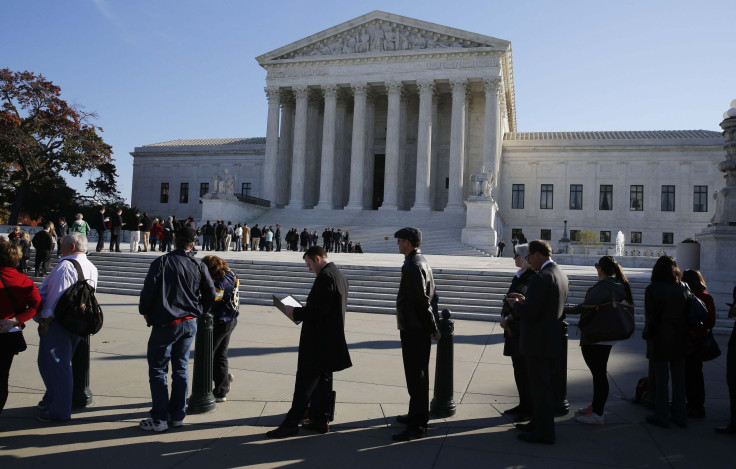Supreme Court Facebook Case 2014: Anthony Elonis Lawsuit Asks Whether Violent Posts Should Be Considered Real Threats

The U.S. Supreme Court is debating the free speech rights of Facebook users as its nine justices prepared Monday for an appeal from a man sent to prison over his violent social media posts. The court was expected to hear an hour of arguments in Elonis v. United States, the case that could set a precedent on whether people can be prosecuted for what they say on the Internet.
The appeal revolves around Anthony Elonis, a 31-year-old theme park employee from Pennsylvania convicted for breaking a federal law that prevents people from threatening each other, the Associated Press reported. Threats aren't covered by the First Amendment if they're "true" -- in other words, if they scare a reasonable person and could be carried out -- but some argue that social media posts can be too easily misinterpreted.
“Internet users may give vent to emotions on which they have no intention of acting, memorializing expressions of momentary anger or exasperation that once were communicated face-to-face among friends and dissipated harmlessly," according to a brief on behalf of Elonis.
Elonis made the threats in question on Facebook, where in 2010 he posted rants saying he wanted to murder his estranged wife. "There's one way to love you but a thousand ways to kill you," Elonis wrote in one post. "I'm not going to rest until your body is a mess, soaked in blood and dying from all the little cuts." When the FBI became involved, Elonis posted that he felt like killing the agent who questioned him, the Los Angeles Times reported. He also said he wanted to shoot a kindergarten class.
At trial, Elonis testified he was posting rap lyrics, not actual threats, according to SCOTUSblog. He was using a pseudonym, "Tone Dougie," and said he was emulating Eminem, who had previously released songs about killing his own ex-wife. But the jury found Elonis' messages real enough, and he was sentenced to 44 months in prison.
Now, the Supreme Court will likely rule on whether prosecutors in cases like these have to produce proof of intent or only show that the threats' targets took them seriously. Supporting Elonis are the American Civil Liberties Union and other free-speech organizations. "A statute that proscribes speech without regard to the speaker's intended meaning runs the risk of punishing protected First Amendment expression simply because it is crudely or zealously expressed," the groups wrote in a brief.
On the other side, the National Network to End Domestic Violence was urging the Supreme Court to regulate online threats. "I'm quite concerned about what ripple impact this may have on other statutes and other prosecutions if we have to somehow get into the mind of an abuser," its vice president told NPR.
The decision is expected in January or February.
© Copyright IBTimes 2024. All rights reserved.






















